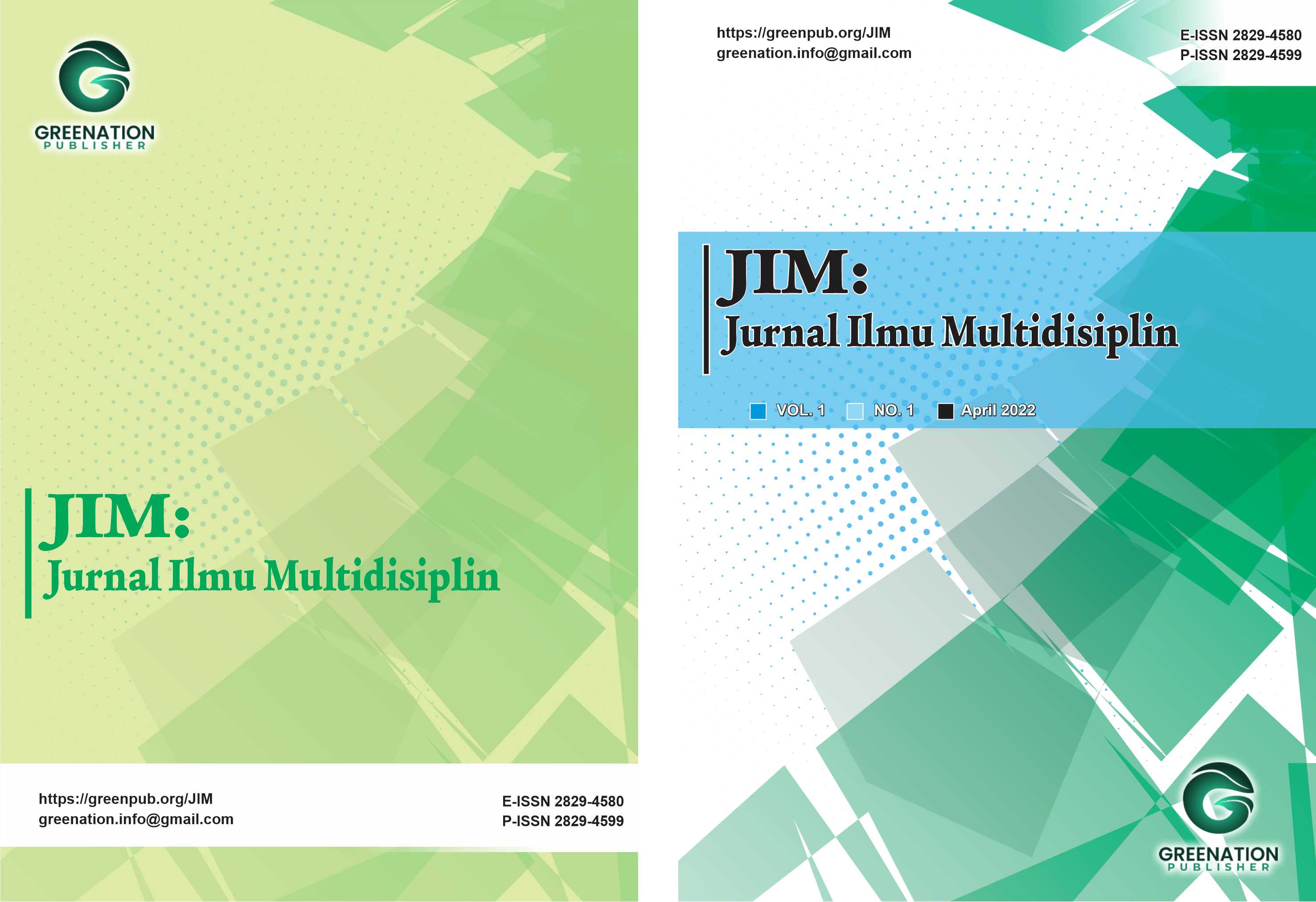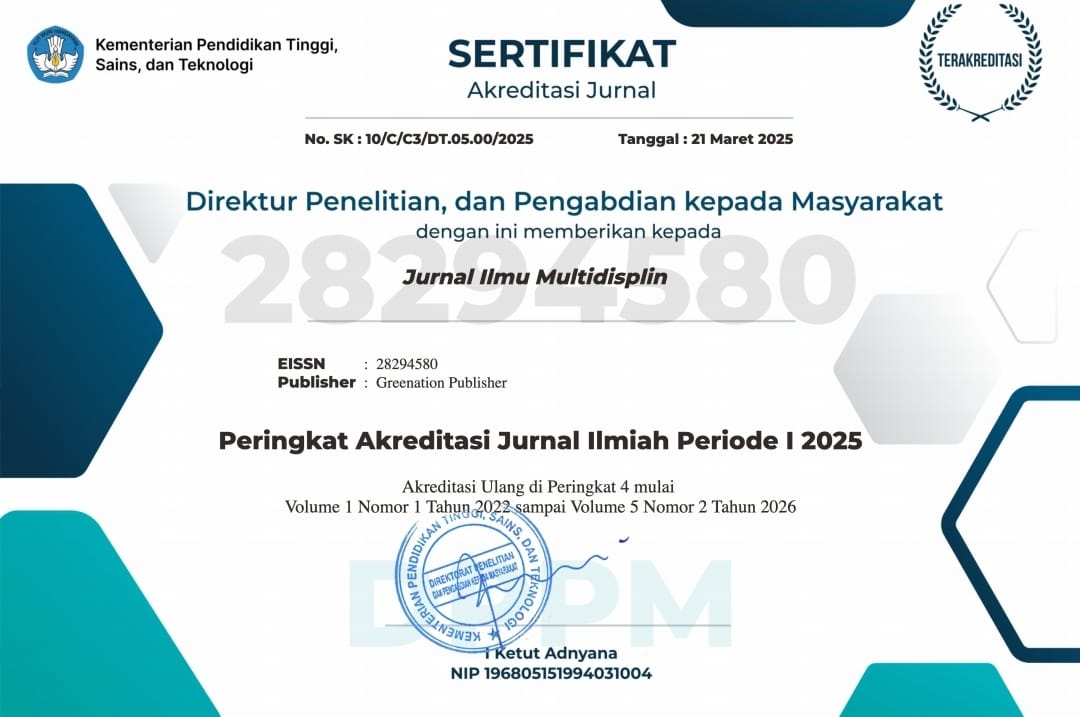Attitude, Perceived Behavioral Control, Subjective Norms, dan Entrepreneurship Education dalam Membentuk Entrepreneurial Intention: Sebuah Tinjauan Literatur
DOI:
https://doi.org/10.38035/jim.v4i2.1023Keywords:
Intensi Kewirausahaan, Theory Of Planned Behavior, Sikap Kewirausahaan, Pendidikan Kewirausahaan, Tinjauan LiteraturAbstract
Latar Belakang: Intensi kewirausahaan merupakan faktor krusial dalam mendorong pertumbuhan ekonomi dan penciptaan lapangan kerja, namun pembentukannya dipengaruhi oleh berbagai faktor psikologis dan sosial yang kompleks. Tujuan: Penelitian ini bertujuan menganalisis pengaruh sikap (attitude), kontrol perilaku yang dipersepsikan (perceived behavioral control), norma subjektif (subjective norms), dan pendidikan kewirausahaan (entrepreneurship education) terhadap intensi kewirausahaan berdasarkan kerangka Theory of Planned Behavior melalui tinjauan literatur sistematis. Metode: Penelitian menggunakan pendekatan kualitatif dengan metode systematic literature review (SLR) terhadap artikel-artikel yang diterbitkan periode 2020-2024 dari database Scopus, Web of Science, ScienceDirect, Emerald Insight, dan Google Scholar, dengan analisis menggunakan thematic analysis. Hasil menunjukkan sikap terhadap kewirausahaan memiliki pengaruh konsisten dan signifikan terhadap intensi kewirausahaan, kontrol perilaku yang dipersepsikan menunjukkan pengaruh yang bervariasi tergantung konteks, norma subjektif memperlihatkan inkonsistensi yang signifikan antar penelitian, sementara pendidikan kewirausahaan umumnya berpengaruh positif dengan peran sebagai moderator dan mediator. Kesimpulan: Kombinasi keempat variabel memberikan pemahaman holistik tentang pembentukan intensi kewirausahaan dengan interaksi kompleks melibatkan efek mediasi dan moderasi, sehingga diperlukan pendekatan integratif dalam pengembangan program pendidikan kewirausahaan yang efektif.
References
Bonaventura Hendrawan Maranata, & Tan Marcella Wijaya. (2021). Pengaruh Subjective Norms, Perceived Behavior Control, Attitude Terhadap Intensi Mahasiswa Menjadi Wirausaha. Applied Research in Management and Business, 1(2), 54–63. https://doi.org/10.53416/arimbi.v1i2.43
Handiman, U. T., Herdiyanto, H., Affini, D. N., Faridi, A., & Sutawijaya, A. H. (2022). Bagaimana Subjective Norms dan Entrepreneurship Education Berpengaruh Terhadap Entrepreneurial Intention Mahasiswa? Jurnal Doktor Manajemen (JDM), 5(1), 79. https://doi.org/10.22441/jdm.v5i1.14741
Hidayah, N., & Ghofur, M. A. (2023). JKIP?: Jurnal Kajian Ilmu Pendidikan The Effect Of Attitude , Subjective Norms , Perceived Behavior Control , And Entrepreneurial Learning On The Entrepreneurial Intention Of Vocational High School Students In Sidoarjo Pengaruh Sikap , Norma Subjektif , P. JKIP?: Jurnal Kajian Ilmu Pendidikan, 4(1), 7–18.
Oktarina, Y., & Pawirosumanto, S. (2024). Pengaruh Norma Subjektif, Persepsi Kontrol Perilaku, Pendidikan dan Sikap Kewirausahaan terhadap Minat Berwirausaha pada Mahasiswa Fakultas Ekonomi Bisnis dan Ilmu Sosial Universitas Perintis Indonesia. Journal of Advances in Accounting, Economics, and Management, 1(3), 1–11. https://doi.org/10.47134/aaem.v1i3.213
Prakoso, M. R., Azhari, M., & Gunawan, A. A. (2024). Pengaruh Attitude Toward Behavior , Subjective Norms , Dan Perceived Behavioural Control Terhadap Entrepreneurial Intention Pada Mahasiswi Di Bandung Raya. 11(5), 4580–4590.
Prawira, J. J., & Hidayah, N. (2021). Pengaruh Subjective Norm, Attitude Toward Behavior, Dan Self-Efficacy Terhadap Entrepreneurial Intention. Jurnal Manajerial Dan Kewirausahaan, 3(3), 762. https://doi.org/10.24912/jmk.v3i3.13208
Purbawijaya, F., & Md Noh, N. H. (2021). Pengaruh Sikap, Norma Subjektif, Dan Pendidikan Kewirausahaan Terhadap Intensi Berwirausaha Pada Mahasiswa. Jurnal Manajerial Dan Kewirausahaan, 3, 970. https://doi.org/10.24912/jmk.v3i4.13439
Rahmawati, V., & Mettan, S. V. (2023). Pengaruh Perceived Desired, Viability, Dan Behavior Control Terhadap Entrepreneurial Intention Pada Mahasiswa Di Surabaya. Jurnal Ekonomi Dan Bisnis, 27(1), 34–51. https://doi.org/10.24123/jeb.v27i1.5690
Respati, A. D., & Santoso, S. (2021). Pengaruh Pemahaman Kewirausahaan Dan Penerapan Teori Planned Behavior Terhadap Minat Berwirausaha. EKONIKA Jurnal Ekonomi Universitas Kadiri, 6(1), 16. https://doi.org/10.30737/ekonika.v6i1.905
Sabella, Fibriani, & Masruroh. (2022). Pengaruh Keterampilan Berwirausaha terhadap Minat Berwirausaha melalui Sikap Berwirausaha dan Perceived Behavior Control Pada Santri di Pondok Pesantren Kabupaten Kediri. Jurnal Manajemen Akuntansi Palapa Nusantara, 7(1), 1–14.
Suryawirawan, O. A., Shabrie, W. S., & Cahyono, K. E. (2021). Implementasi Theory of Planned Behavior terhadap Entrepreneurial Intention: Efek Moderasi Entrepreneurship Education dan Gender. Jurnal Manajemen Dan Kewirausahaan, 9(2), 207–221. https://doi.org/10.26905/jmdk.v9i2.6367
Tiona, T., & Tan, P. H. P. (2024). Subjective norm , perceived behavioral control , self efficacy. 2024(2022), 840–850.
Widjaja, M., & Dewi, L. (2023). Pengaruh Attitude Toward Behavioral, Subjective Norm, Perceived Behavioral Control Terhadap Entrepreneurial Intention. Performa, 8(1), 10–19. https://doi.org/10.37715/jp.v8i1.2018
Xevinkeng, X., & Layman, C. V. (2022). Do University Support, Entrepreneurial Attitudes, Subjective Norms, and Self-Efficacy Influence Student Entrepreneurial Intention? Ultima Management?: Jurnal Ilmu Manajemen, 14(1), 39–59. https://doi.org/10.31937/manajemen.v14i1.2499
Yusvan, A. M., Sabara, A. R., Yasir, A., Rano, J. A., & Yusril, B. (2024). Pengaruh Sikap, Norma Subjektif dan Kontrol Perilaku terhadap Intensi Berwirausaha pada Mahasiswa Kesehatan Universitas Almarisah. Jurnal Manajemen Dan Administrasi Antartika, 1(3), 83–88. https://doi.org/10.70052/juma.v1i3.461
Zaikauskaite, L., Grzybek, A., Mumford, R. E., & Tsivrikos, D. (2023). The Theory of Planned Behaviour doesn’t reveal “attitude-behaviour” gap? Contrasting the effects of moral norms vs. idealism and relativism in predicting pro-environmental behaviours. In PLoS ONE (Vol. 18, Issue 11 November). https://doi.org/10.1371/journal.pone.0290818
Downloads
Published
How to Cite
Issue
Section
License
Copyright (c) 2025 Dafit Dahroni, Mira Ariyani, Herdiyan Maulana

This work is licensed under a Creative Commons Attribution 4.0 International License.
You are free to:
- Share— copy and redistribute the material in any medium or format
- Adapt— remix, transform, and build upon the material for any purpose, even commercially.
The licensor cannot revoke these freedoms as long as you follow the license terms.
Under the following terms:
- Attribution— You must give appropriate credit, provide a link to the license, and indicate if changes were made. You may do so in any reasonable manner, but not in any way that suggests the licensor endorses you or your use.
- No additional restrictions— You may not apply legal terms or technological measures that legally restrict others from doing anything the license permits.
Notices:
- You do not have to comply with the license for elements of the material in the public domain or where your use is permitted by an applicable exception or limitation.
- No warranties are given. The license may not give you all of the permissions necessary for your intended use. For example, other rights such as publicity, privacy, or moral rightsmay limit how you use the material.



























